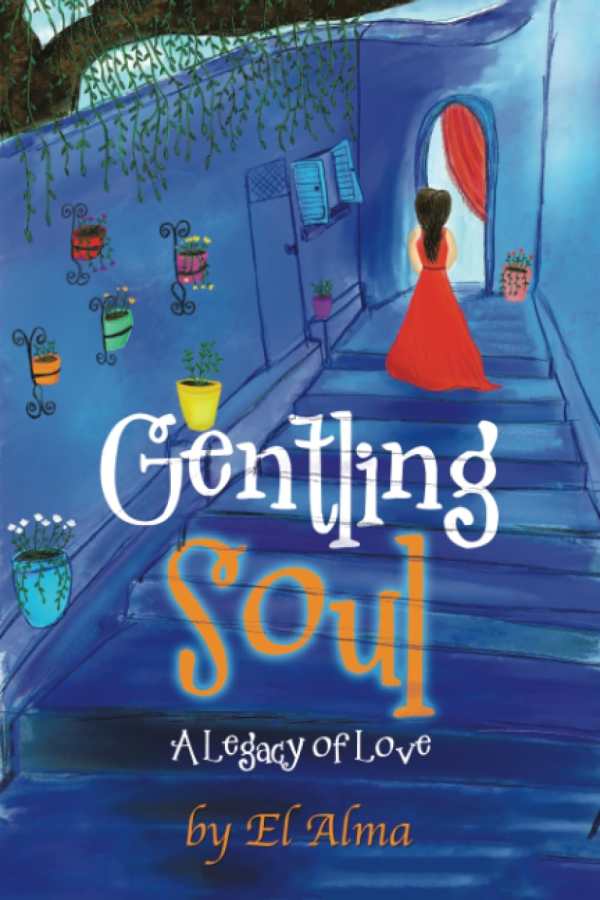It looks like you've stumbled upon a page meant to be read by our code instead of viewed directly. You're probably looking for this page.
Gentling Soul
A Legacy of Love
Society’s necessary growth toward embracing those with neurogenetic disorders is highlighted in the multigenerational novel Gentling Soul.
In El Alma’s novel Gentling Soul, an aging woman with a neurogenetic disorder discovers her family’s history of such disorders but also finds comfort in the bountiful love that unites them across generations.
Asina visits deceased relatives through her dreams and visions. During these out-of-body experiences, she experiences life through the eyes of her ancestors, some of whom lived in Ireland and others of whom moved to Australia. She visits them down through the generations. The second link that unites them is neurogenetic disorders of varying degrees. Though at first Asina regards these disorders as an intergenerational curse, she learns to reframe them: her family members, she decides, are all “gentling souls” who have a higher purpose on Earth.
Following Asina as she learns how to help herself and others with neurogenetic disorders, the story is a steady one. It includes Asina’s personal education and experiences with religion; these grounded experiences are counterbalanced by scenes focused on her visions and visits to the past. But the dual plots also have a cumbersome quality, packing the book with references to Asina’s ancestors and heritage to emphasize how, in different times, their conditions were misunderstood, even feared—and driving home the idea that the same conditions can be positively reframed through the revelations of modern science. Further, the transitions between the present and the past are often too abrupt, disrupting the novel’s flow.
Though Asina is focal, most of the book’s tension is sequestered to her ancestors’ lives; they are seen facing fear, ridicule, and isolation from society because of their conditions. Despite her own neurological issues, Asina’s life is peaceful in comparison—used to illustrate the significance of her acceptance of being a gentling soul capable of ushering “normal” people into spaces where love and peace can flourish. Further, she has access to resources that her family did not, enabling her greater social inclusion even more.
In the end, the story’s pointed commentary on society’s growth toward embracing those with neurogenetic disorders is more prominent than the individual qualities of its characters. Indeed, while it is through Asina’s story that the family’s generations realize their ultimate purpose as gentling souls, Asina’s own interactions with others are limited—obscured behind scenes that show her immersed, through visions and otherwise, in self-evaluation and personal discovery.
In the spiritual novel Gentling Soul, a woman’s desire to understand the neurogenetic afflictions that she inherited results in ancestral introspection and personal growth.
Reviewed by
Mary McNichol
Disclosure: This article is not an endorsement, but a review. The publisher of this book provided free copies of the book and paid a small fee to have their book reviewed by a professional reviewer. Foreword Reviews and Clarion Reviews make no guarantee that the publisher will receive a positive review. Foreword Magazine, Inc. is disclosing this in accordance with the Federal Trade Commission’s 16 CFR, Part 255.
